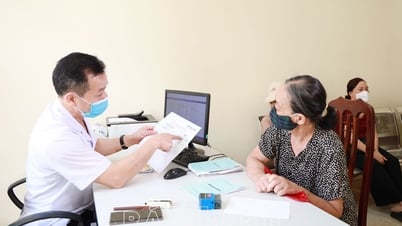Body odor, combined with symptoms such as fatigue, dry mouth, shortness of breath or abdominal pain, can be a warning sign that something is wrong with your health.
Each person has a unique body odor, often influenced by diet, gender, health problems and medications. And in fact, body odor can help warn of the diseases we are experiencing.
- Breath smells like acetone or fruit: People with diabetes, especially type 1 with DKA complications, lack insulin in their bodies so they cannot convert sugar into energy and must break down fatty acids to create energy.
The breakdown products of these fats are called ketones and form ketones in the blood. Acetone (the main ingredient of ketones), commonly found in nail polish remover, will give sufferers' breath an acetone-like or fruity odor.
When in contact, doctors can quickly detect this characteristic odor when the patient first enters the room. The American Diabetes Association recommends that if you detect a fruity/acetone breath odor along with symptoms such as fatigue, dry mouth, shortness of breath or abdominal pain, you should see a doctor soon.
- Urine has a sweet syrupy smell: In people with protein metabolism disorders, the smell of urine, sweat, or earwax has a characteristic syrupy smell.
This smell sounds sweet and pleasant but in fact the disease can be fatal for infants. If the patient is older, symptoms include weight loss, diarrhea, hallucinations and uncontrollable behavior.

- The body emits a garlic odor: This is a warning sign of arsenic poisoning. Typical symptoms of arsenic poisoning include vomiting, abdominal pain, bloody diarrhea and eventually death. A strange symptom that doctors have noted in arsenic poisoning patients is the smell of garlic emanating from the body. Scientists have also accidentally discovered that garlic itself can counteract the effects of arsenic poisoning.
- The urinary tract often has a musty odor: Children with PKU - a disorder that causes the accumulation of phenylalanine, an essential amino acid that the body cannot synthesize but is available in food.
Children with PKU rarely show symptoms right away. Common symptoms include seizures, nausea, vomiting, an eczema-like rash, paler skin and hair than those in the family, aggressive, self-injurious behavior, and hyperactivity. Psychiatric symptoms are sometimes present. Children with the disease often have a mousy body odor and a distinctive musty urine odor due to the presence of phenylalanine byproducts in urine and sweat.
- Smells like freshly baked bread: A symptom of typhoid fever. This is an infection caused by the bacteria Salmonella Typhi, with common symptoms including high fever, fatigue, abdominal pain, constipation, and rash. A 1976 article in the Journal of Medicine found that typhoid patients often smell like freshly baked bread. Although this smell may seem pleasant, the consequences of the disease are serious. In addition to typhoid fever, other preventable diseases associated with odors, such as diphtheria, have a sweet smell.
- Fishy smell: Is a clear sign of fish odor syndrome or Trimethylaminuria. The cause of this disorder is due to the body secreting excessive Trimethylaminuria. The syndrome is genetic, symptoms can be felt from birth. The disease is not dangerous to health but seriously affects psychological and social issues.
According to vov.vn
Source link


![[Photo] Many dykes in Bac Ninh were eroded after the circulation of storm No. 11](https://vphoto.vietnam.vn/thumb/1200x675/vietnam/resource/IMAGE/2025/10/15/1760537802647_1-7384-jpg.webp)



![[Photo] Conference of the Government Party Committee Standing Committee and the National Assembly Party Committee Standing Committee on the 10th Session, 15th National Assembly](https://vphoto.vietnam.vn/thumb/1200x675/vietnam/resource/IMAGE/2025/10/15/1760543205375_dsc-7128-jpg.webp)
![[Photo] General Secretary To Lam attends the 18th Hanoi Party Congress, term 2025-2030](https://vphoto.vietnam.vn/thumb/1200x675/vietnam/resource/IMAGE/2025/10/16/1760581023342_cover-0367-jpg.webp)


















![[Video] TripAdvisor honors many famous attractions of Ninh Binh](https://vphoto.vietnam.vn/thumb/402x226/vietnam/resource/IMAGE/2025/10/16/1760574721908_vinh-danh-ninh-binh-7368-jpg.webp)







































































Comment (0)